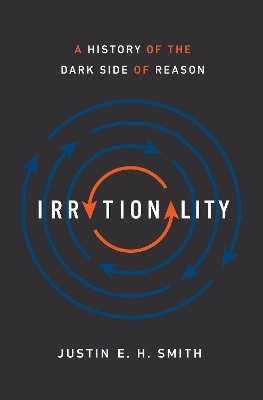
Irrationality
A History of the Dark Side of Reason
Seiten
2019
Princeton University Press (Verlag)
978-0-691-17867-7 (ISBN)
Princeton University Press (Verlag)
978-0-691-17867-7 (ISBN)
A fascinating history that reveals the ways in which the pursuit of rationality often leads to an explosion of irrationalityIt's a story we can't stop telling ourselves. Once, humans were benighted by superstition and irrationality, but then the Greeks invented reason. Later, the Enlightenment enshrined rationality as the supreme value. Discove
A fascinating history that reveals the ways in which the pursuit of rationality often leads to an explosion of irrationality
It’s a story we can’t stop telling ourselves. Once, humans were benighted by superstition and irrationality, but then the Greeks invented reason. Later, the Enlightenment enshrined rationality as the supreme value. Discovering that reason is the defining feature of our species, we named ourselves the “rational animal.” But is this flattering story itself rational? In this sweeping account of irrationality from antiquity to today—from the fifth-century BC murder of Hippasus for revealing the existence of irrational numbers to the rise of Twitter mobs and the election of Donald Trump—Justin Smith says the evidence suggests the opposite. From sex and music to religion and war, irrationality makes up the greater part of human life and history.
Rich and ambitious, Irrationality ranges across philosophy, politics, and current events. Challenging conventional thinking about logic, natural reason, dreams, art and science, pseudoscience, the Enlightenment, the internet, jokes and lies, and death, the book shows how history reveals that any triumph of reason is temporary and reversible, and that rational schemes, notably including many from Silicon Valley, often result in their polar opposite. The problem is that the rational gives birth to the irrational and vice versa in an endless cycle, and any effort to permanently set things in order sooner or later ends in an explosion of unreason. Because of this, it is irrational to try to eliminate irrationality. For better or worse, it is an ineradicable feature of life.
Illuminating unreason at a moment when the world appears to have gone mad again, Irrationality is fascinating, provocative, and timely.
A fascinating history that reveals the ways in which the pursuit of rationality often leads to an explosion of irrationality
It’s a story we can’t stop telling ourselves. Once, humans were benighted by superstition and irrationality, but then the Greeks invented reason. Later, the Enlightenment enshrined rationality as the supreme value. Discovering that reason is the defining feature of our species, we named ourselves the “rational animal.” But is this flattering story itself rational? In this sweeping account of irrationality from antiquity to today—from the fifth-century BC murder of Hippasus for revealing the existence of irrational numbers to the rise of Twitter mobs and the election of Donald Trump—Justin Smith says the evidence suggests the opposite. From sex and music to religion and war, irrationality makes up the greater part of human life and history.
Rich and ambitious, Irrationality ranges across philosophy, politics, and current events. Challenging conventional thinking about logic, natural reason, dreams, art and science, pseudoscience, the Enlightenment, the internet, jokes and lies, and death, the book shows how history reveals that any triumph of reason is temporary and reversible, and that rational schemes, notably including many from Silicon Valley, often result in their polar opposite. The problem is that the rational gives birth to the irrational and vice versa in an endless cycle, and any effort to permanently set things in order sooner or later ends in an explosion of unreason. Because of this, it is irrational to try to eliminate irrationality. For better or worse, it is an ineradicable feature of life.
Illuminating unreason at a moment when the world appears to have gone mad again, Irrationality is fascinating, provocative, and timely.
Justin E. H. Smith is professor of the history and philosophy of science at the University of Paris 7–Denis Diderot. His books include The Philosopher: A History in Six Types (Princeton). An editor at large of Cabinet Magazine, he also writes frequently for the New York Times, Harper’s Magazine, and other publications.
| Erscheinungsdatum | 27.02.2019 |
|---|---|
| Zusatzinfo | 1 b/w illus. |
| Verlagsort | New Jersey |
| Sprache | englisch |
| Maße | 155 x 235 mm |
| Themenwelt | Geisteswissenschaften ► Philosophie ► Allgemeines / Lexika |
| Geisteswissenschaften ► Philosophie ► Ethik | |
| Geisteswissenschaften ► Philosophie ► Geschichte der Philosophie | |
| Geisteswissenschaften ► Philosophie ► Logik | |
| Geisteswissenschaften ► Philosophie ► Philosophie der Neuzeit | |
| Sozialwissenschaften | |
| ISBN-10 | 0-691-17867-4 / 0691178674 |
| ISBN-13 | 978-0-691-17867-7 / 9780691178677 |
| Zustand | Neuware |
| Informationen gemäß Produktsicherheitsverordnung (GPSR) | |
| Haben Sie eine Frage zum Produkt? |
Mehr entdecken
aus dem Bereich
aus dem Bereich
die letzten Jahre der Philosophie und der Beginn einer neuen …
Buch | Hardcover (2024)
Klett-Cotta (Verlag)
28,00 €
Konfuzianismus, Daoismus, Buddhismus
Buch | Softcover (2023)
C.H.Beck (Verlag)
18,00 €


